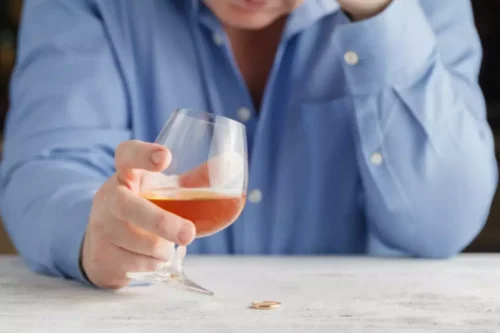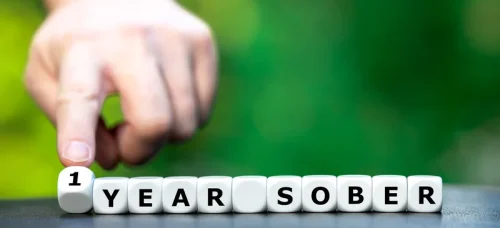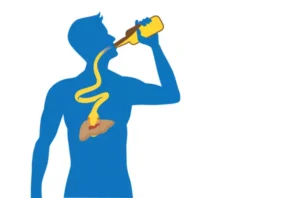
Is your loved one always broke, despite no apparent change in income? Unexplained financial problems can be a major red flag, as addiction often comes with a hefty price tag. But it’s not just about what they’re not doing—it’s https://ecosoberhouse.com/ also about what they’ve stopped enjoying. When someone loses interest in activities they once loved, it could be more than just a passing phase. It might be addiction, stealing away their passions one by one.
Body Scan Meditation
- Now that we’ve painted a picture of the early signs of addiction, what’s next?
- Many people struggling with addiction cannot support healthy relationships because their priority is drug use.
- Centers for Disease Control and Prevention, fentanyl is the drug most often involved in fatal overdoses in the U.S.
- A combination of medication and behavioral therapy has been found to have the highest success rates in preventing relapse and promoting recovery.
- Help from your health care provider, family, friends, support groups or an organized treatment program can help you overcome your drug addiction and stay drug-free.
Tasks that used to be a breeze now seem like climbing Mount Everest. This lack of motivation or energy can be a sign that addiction is sapping their life force. Addiction doesn’t just affect the body—it messes with the mind too. Increased anxiety or paranoia can be red flags waving frantically in the breeze. It’s like the person is constantly on edge, jumping at shadows and seeing threats where none exist.

Drug Misuse and Addiction
- Drug addiction is a complex, chronic medical disease that results in compulsive use of psychoactive substances despite the negative consequences.
- While they may not express it, teens do value bonds with the adults in their lives.
- Withdrawal symptoms occur when drug use is abruptly stopped or the dosage is sharply diminished.
- But over time, the opioid use disorder is likely to lead to serious problems.
The initial decision to take drugs is typically voluntary. But with continued use, a person’s ability to exert self-control can become seriously impaired. This impairment in self-control is the hallmark of addiction.
Physical Symptoms and Health Problems

Take the assessment and get matched with a professional, licensed therapist. Whether you choose to go to rehab, rely on self-help programs, get therapy, or take a self-directed treatment approach, support is essential. You’ve abandoned activities you used to enjoy, such as hobbies, sports, and socializing, because of your drug use. Experiencing legal trouble, such as arrests for disorderly conduct, driving under the influence, or stealing to support a drug habit. Open communication starts by showing an interest in and talking to your teen about everything. This dialogue builds trust and respect, making it easier for you to talk about difficult topics.
- Do not dispose of medications by flushing them down the toilet or pouring them down the sink.
- Withdrawal happens when it leaves your body and the intoxication effects wear off.
- Some people fear that they may become addicted to medicines prescribed for medical conditions, such as painkillers prescribed after surgery.
- They may especially become defensive if you ask them about drugs or addiction.
- Therapy and medications are available to help you manage this chronic condition when you’re ready.
- Eyes are often called the windows to the soul, but they can also be windows to addiction.
You break promises to yourself that you will stop using—a source of self-contempt that has a way of perpetuating addiction by needing relief in the high of substance use. You get defensive or belligerent with loved ones or colleagues who want to know what’s going on; they notice peculiarities about your signs of drug use behavior or appearance that you are not likely to recognize. You maintain a belief that you can stop any time you want—despite evidence to the contrary. When someone misuses drugs or alcohol, they may look and act in uncharacteristic ways. They may also think and feel differently than they normally do.

You spend a lot of time using and thinking about drugs, figuring out how to get them, or recovering from the drug’s effects. Recovery can begin at any point in the addiction process—and the earlier, the better. The longer drug abuse continues, the stronger the addiction becomes and the harder it is to treat. Don’t wait to intervene until the addict has lost everything.
- The medications and treatment program recommended will be based on each individual’s situation.
- While the best-known signs of addiction may be physical changes in a person—weight loss to the point of emaciation, the red face of problem drinkers—those occur late in the course of substance use.
- It is estimated that 80 percent of long-term heavy drinkers suffer from some degree of thiamine deficiency.
- Even healthcare professionals may overlook common signs of opioid misuse if they feel they know the person and don’t look for signs in an objective way.
- When an individual suffering from alcohol use disorder stops drinking, they will experience withdrawal symptoms, such as headaches, nausea, insomnia, and anxiety.
- Addiction is a lot like other diseases, such as heart disease.
Opioid painkillers
They may become moody and not want to talk to you or anyone that may notice changes due to drug use. Being Dishonest or Sneaky, Hiding Things, or Needing Increased Privacy. Most people are not going to be very public about their drug use, especially if it’s to an illegal substance. You may notice your loved one is lying about where they are or who they’re with.

Addiction is often marked by multiple periods of abstinence and relapse. It is common for people to make many attempts at recovery before succeeding, and many experts in fact view relapse as a normal part of the recovery process. Barbiturates, benzodiazepines and hypnotics are prescription central nervous system depressants. They’re often used and misused in search for a sense of relaxation or a desire to “switch off” or forget stress-related thoughts or feelings. Substituted cathinones, also called “bath salts,” are mind-altering (psychoactive) substances similar to amphetamines such as ecstasy (MDMA) and cocaine.